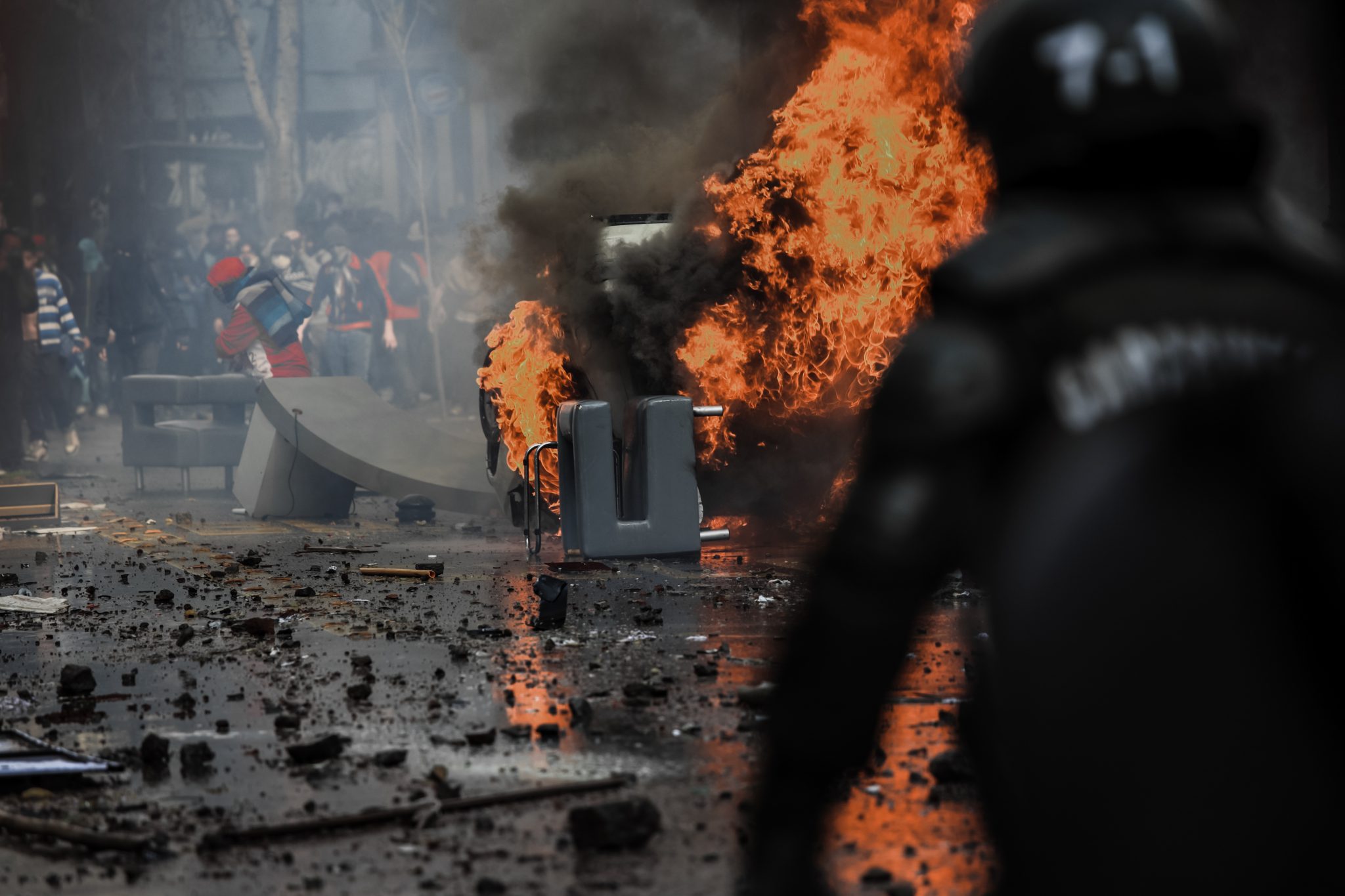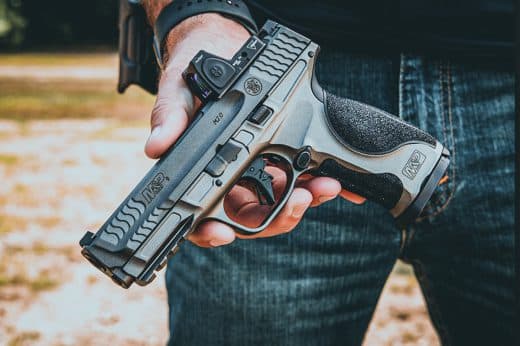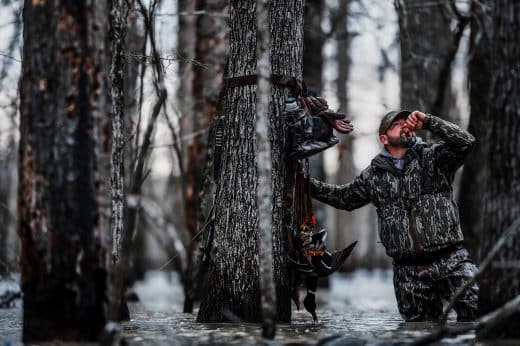A piece of legislation that could codify the protection of gun rights during states of emergency in Ohio was approved by a committee this week and will be sent to the House for a vote. The bill, HB 325, would declare firearm possession, transportation, carrying, commerce, and training range access — as well as hunting and fishing — to be life-sustaining and essential activities protected from closure or suspension during riots, natural disasters, and other emergencies.
The bill would prohibit local and state government authorities from infringing on these rights during a declared emergency and provide legal recourse for people who experience such infringements.
“It is important to note that this bill does not expand current firearm related rights. It simply clarifies that people cannot have their rights taken away during a declared emergency.”
—Ohio Rep. Scott Wiggam
Rep. Scott Wiggam (R-1st District) introduced HB 325 last May in response to Gov. Mike DeWine closing businesses in Ohio (not including gun stores) at the beginning of the COVID-19 pandemic. It’s also a response to actions taken in other states that did not consider gun retailers essential businesses and restricted or suspended hunting and fishing seasons, gun sales, or concealed-carry permit issuance and renewals during the pandemic.
“During the COVID pandemic, it became evident that local, state, and federal governments have wide powers to declare an emergency and implement restrictions on citizens’ rights,” Wiggam said in testimony before House Government Oversight Committee. “Fortunately, in Ohio, these powers were not used to infringe on Second Amendment rights. However, this was not the case in other states.”

RELATED – Ohio Constitutional Carry Bill Passes Senate, Competes With House Bill
“In Michigan, Gov. Whitmer issued Executive Order 2020-42, which closed firearm and ammunition retailers, deeming them as nonessential businesses,” he added. “She has since gone on to state she [sic] implement these kind of restrictions again. This type of overreach should never be permitted to occur in Ohio.”
Wiggam went on to say that similar legislation is already in place in 24 other states, including most of Ohio’s neighbors, namely Indiana, Kentucky, and West Virginia.
The bill’s companion bill in the Senate, SB 185, was introduced by Sen. Tim Schaffer and passed with a 23-7 vote in October.
Specifically, HB 325 amends section 3761.16 of the Ohio code. It enacts section 5502.411 of the Revised Code “regarding a political subdivision’s emergency powers when suppressing a riot, mob, or potential riot or mob and the preservation of rights regarding firearms during an emergency.”
In written testimony submitted during the bill’s first committee hearing in September (it has been through four), Wiggam echoed the text of the bill, which would declare gun sales to be “life sustaining ‘essential’ businesses and services for the purposes of safety and security” during any “disaster, war, act of terrorism, riot, civil disorder, public health crisis, or emergency of whatever kind.”

RELATED – Gun Owners Required to Buy Liability Insurance Under New San José Law
The legislation would prevent any government agency or body from prohibiting the sale or transfer of firearms, ammunition, or other weapons. Additionally, it would disallow any refusals from government agencies to accept or process otherwise lawful applications for concealed carry licenses. If a person’s carry license were to expire during an emergency, such as a pandemic lockdown, HR 325 would guarantee that license would be extended, allowing that person to continue to carry legally for self-defense at a time when it may matter the most.
As Wiggam said, while some states suspended firearms sales for a time during the pandemic, the stay-at-home orders issued in Ohio in March 2020 that remained in place until May of that year allowed firearm retailers to remain open.
The bill also protects hunting and fishing seasons from cancellation or suspension, as well as businesses associated with those activities, by preventing any government authority or individual from suspending or “prohibiting otherwise lawful hunting, fishing, or trapping activities” on state land or otherwise, as a response to a declared emergency.

RELATED – Rash of la Train Robberies Continues: 82 Firearms Stolen, Possibly More
“It is important to note that this bill does not expand current firearm related rights.” Wiggam testified. “It simply clarifies that people cannot have their rights taken away during a declared emergency.”
A date for a vote in the House on HB 325 has not yet been set.
There are more potential Ohio gun laws teed up for 2022, including legislation that would establish constitutional carry in the state. This week, two hearings were held by the House Government Oversight Committee on SB 215, which would allow anyone 21 and older who can legally possess a firearm to carry a concealed handgun without a permit. The current Ohio law requires eight hours of training and a background check before a concealed-carry permit can be issued.
SB 215 maintains Ohio’s existing concealed handgun license system for residents to obtain a carry permit if they so choose to fulfill reciprocity agreement requirements when crossing state lines.
The bill has already been passed in the Senate and will likely pass in the House when it gets out of committee, considering the House passed the same language in a different bill last November. Since the passage of the Senate bill, language in the House bill was changed, and it was kicked back to the committee and will require another vote before it can be sent to the governor for a signature.
Gov. DeWine has not taken a position on the legislation, but in 2018, he told the Buckeye Firearms Association in writing that he would support a constitutional carry bill in Ohio. However, DeWine has called for more restrictive gun laws in Ohio over the past two years and has championed expanded background checks for gun purchases — but he also signed Ohio’s stand-your-ground law last year.
The committee also began reviewing HB 455, which relaxes rules and penalties associated with carrying a concealed firearm in prohibited places, such as a school safety zone.
READ NEXT – ATF Compiling Form 4473 Database With Nearly a Billion Records So Far








Comments